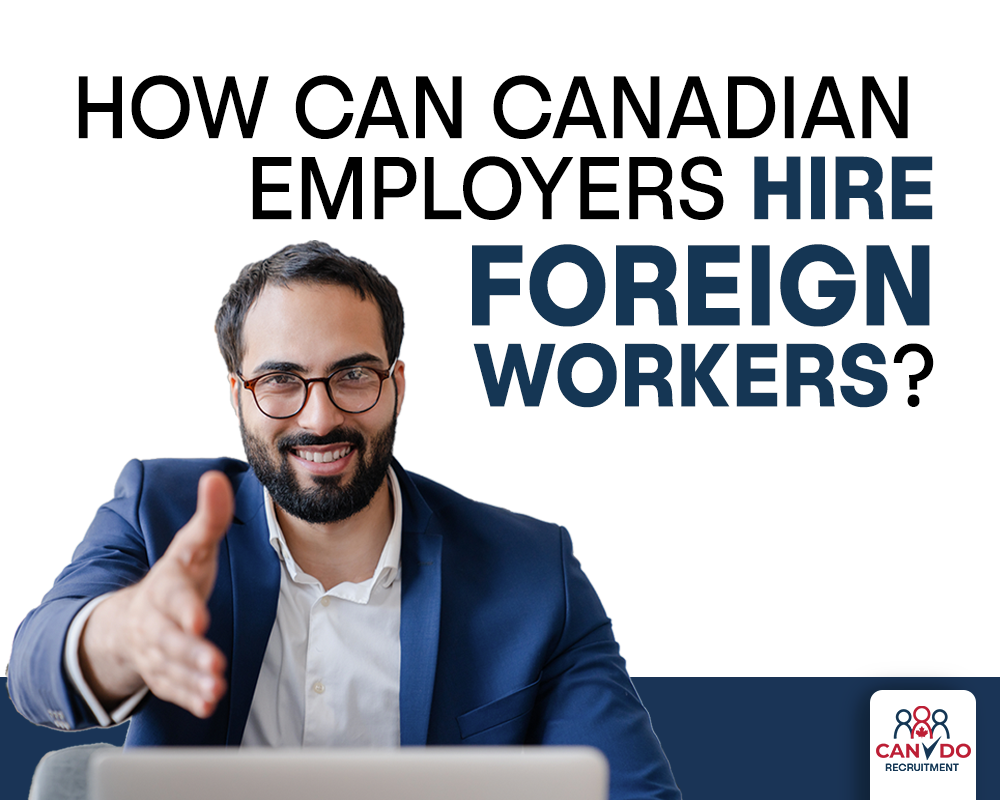Foreign workers have played a vital role in the Canadian job market for decades – and the role immigrants play in advancing the Canadian economy is only growing more important.
Over the past years, the growth in the number of jobs available in Canada has been outpacing the number of working age Canadians available to fill those roles. The pandemic has exacerbated this issue, since the typical flow of temporary workers slowed to a trickle with the increased border restrictions. As a result, there were 896,000 job vacancies in December 2021. This figure is 87.9% higher than the number of job vacancies in December 2020.
“If it weren’t for immigrants, employers would have trouble finding enough qualified workers to fill available jobs.” - Government of Canada.
In this article, we will provide details about how employers can hire foreign workers to fill these vacant jobs.
A Snapshot of Canada’s Workforce
Canadians are living longer and having fewer children. Canada relies on immigrants to grow Canada’s population, fill job gaps, support the aging population, drive innovation, and fill temporary roles.
Today, one quarter of Canada’s working-age people is an immigrant. While immigrants are employed across all sectors in Canada, they make up a significant portion of particular industries, including business owners and employers, healthcare workers, scientists, artists, sports coaches, and social assistance providers.
Hiring Temporary Workers in Canada: Options for Employers
There are a range of options for Canada’s employers looking to hire temporary foreign workers. They include:
Hire Young Workers Eligible for the International Experience Canada permit
The International Experience Canada (IEC) permit provides young workers with an opportunity to live and work in Canada for 2 years. These permits are sometimes referred to as a Working Holiday permit.
There are three IEC streams: international co-op (internship), working holiday, and young professionals. A limited number of these permits are available for workers under the age of 35 from certain countries each year. Requirements vary for each category, so employers need to work with foreign workers to determine whether they’re eligible for an IEC permit.
Applicants do not need a job offer to apply for the working holiday stream, which makes this a simple and cost-effective method for hiring foreign workers for employers.
Young professionals and internship participants do require a job offer, and employers must pay the employer compliance fee before the application is submitted. Employers must also complete and submit an offer of employment to the IRCC once the applicant receives an Invitation to Apply (ITA).
How Canadian Employers Can Hire Permanent Workers
Canada’s employers can also support foreign workers in their application for Canadian permanent residency.
Hiring Overseas Talent Through Express Entry
Canada’s Express Entry program provides an expediated pathway to permanent residence for skilled foreign workers. There are three streams for permanent residence under the Express Entry program: Federal Skilled Worker (FSW), Canadian Experience Class (CEC), and the Provincial Nominee Program (PNP).
Applicants for the PNP stream must have an eligible job offer from a Canadian employer to meet the program requirements. Foreign workers applying for the CEC and FSW streams benefit from additional points for their application if they have an eligible job offer from a Canadian employer.
Hiring Foreign Talent Through the Federal Skilled Streams
The Federal Skilled Worker and Federal Skilled Trades programs are for highly skilled workers with foreign work experience. Often, these talented workers apply from outside Canada and move to Canada. By offering these foreign workers an eligible job before they arrive, you can support their application for permanent residence.
Hiring Talented Foreign Workers with Canadian Work Experience
Foreign workers who have worked in Canada for 12 months (or equivalent part-time) on a valid work permit may be eligible for the Canadian Experience Class. Employers can support the foreign worker’s application for permanent residence via the CEC by providing an eligible job offer.
Hiring Foreign Workers Through Provincial Programs
Canada’s provinces offer Provincial Nominee Programs for skilled workers and lower-skilled workers with Canadian work experience, as well as entrepreneurs, and international graduates. The programs available vary based on the priorities of each province.
Many of these programs are built around the needs of Canada’s employers.
To apply for the Atlantic Immigration Program, applicants need to have an eligible job offer from an employer in one of Canada’s Atlantic Provinces.
The recently announced Alberta Advantage Immigration Program has a Rural Renewal Stream that helps employers in rural Alberta to hire and attract foreign workers.
The Rural and Northern Immigration Pilot, for example, connects employers in Ontario, BC, and 3 territories with foreign workers willing to move to these regions.
Similarly, the BC Tech program provides a pathway for skilled tech workers to fill vacant positions in BC where no Canadians are available.
For more information about hiring foreign workers, book a free consultation with our registered immigration consultants.
How Canadian Employers Hire Temporary Foreign Workers to Fill Vacant Jobs
Canada’s employers can hire temporary foreign workers to fill vacant roles. These work permits are provided for a limited time and only allow the foreign worker to be employed by the company that provided the initial job offer.
There are three steps for Canadian employers looking to hire temporary foreign workers to fill vacant jobs.
Step 1: Get a Labour Market Impact Assessment (LMIA) or submit an offer of employment under the International Mobility Program (IMP).
Step 2: Have the worker apply for a work permit.
Step 3: Wait for the work permit to arrive before the worker either arrives in Canada (if applying from outside Canada) or commencing work (if applying from inside Canada).
Hiring Temporary Foreign Workers via an LMIA
Employers hoping to hire foreign workers (who live inside or outside Canada) usually require an LMIA. The process for obtaining an LMIA varies depending on whether you intend to hire high wage workers, low wage workers, seasonal workers, or agricultural program workers.
Once you receive your LMIA and you have found a foreign worker to hire, employers must provide them with the LMIA, LMIA number, and an eligible job offer. The foreign worker can then apply for a time-limited work permit.
Hire Temporary Foreign Workers Without an LMIA
The International Mobility Program (IMP) allows employers to hire temporary foreign workers from visa-exempt countries without an LMIA. This program is specifically for positions that advance Canada’s broader cultural and economic development, so only certain jobs fall under this category. The eligible jobs change in line with varying public policies.




